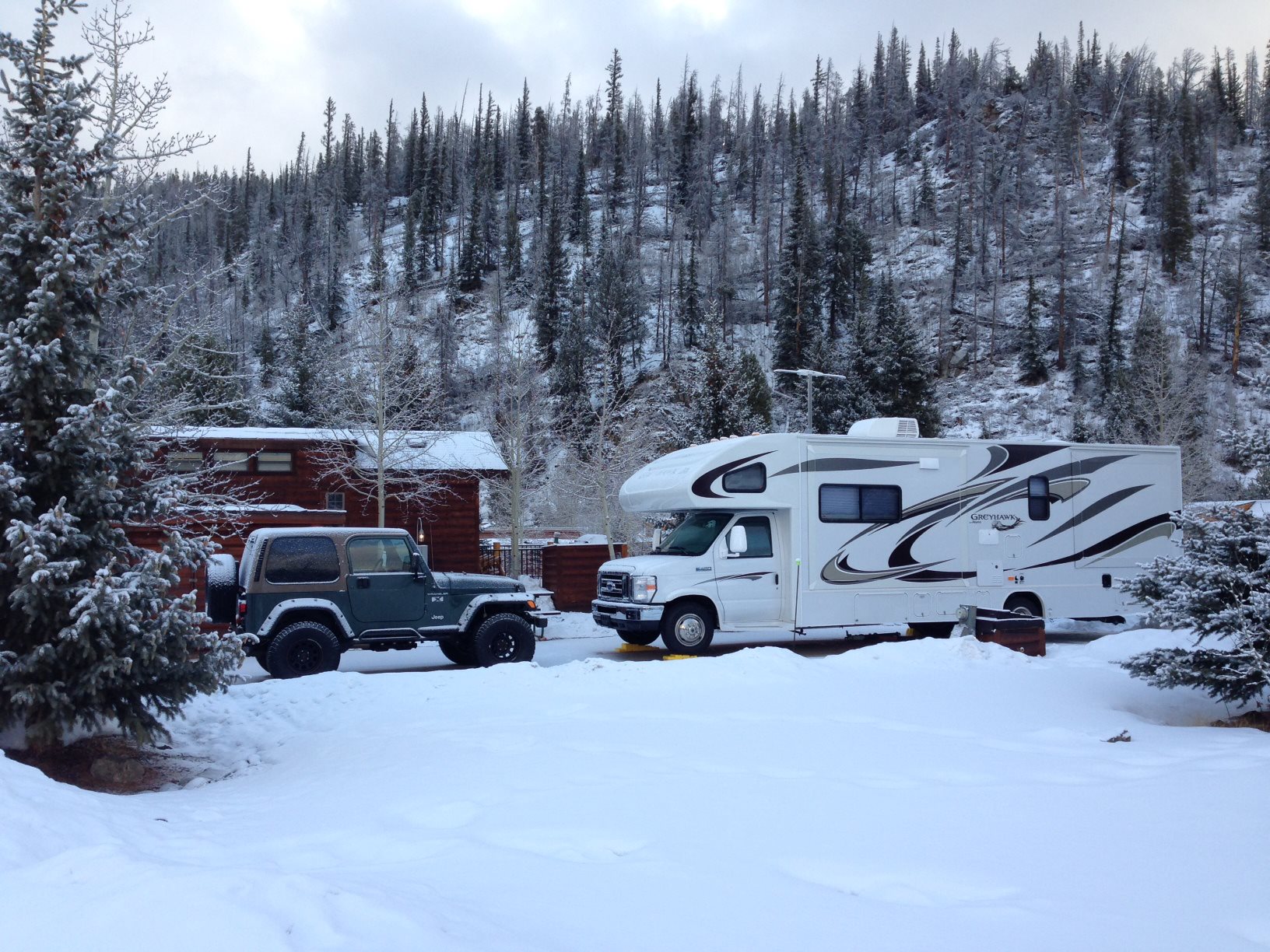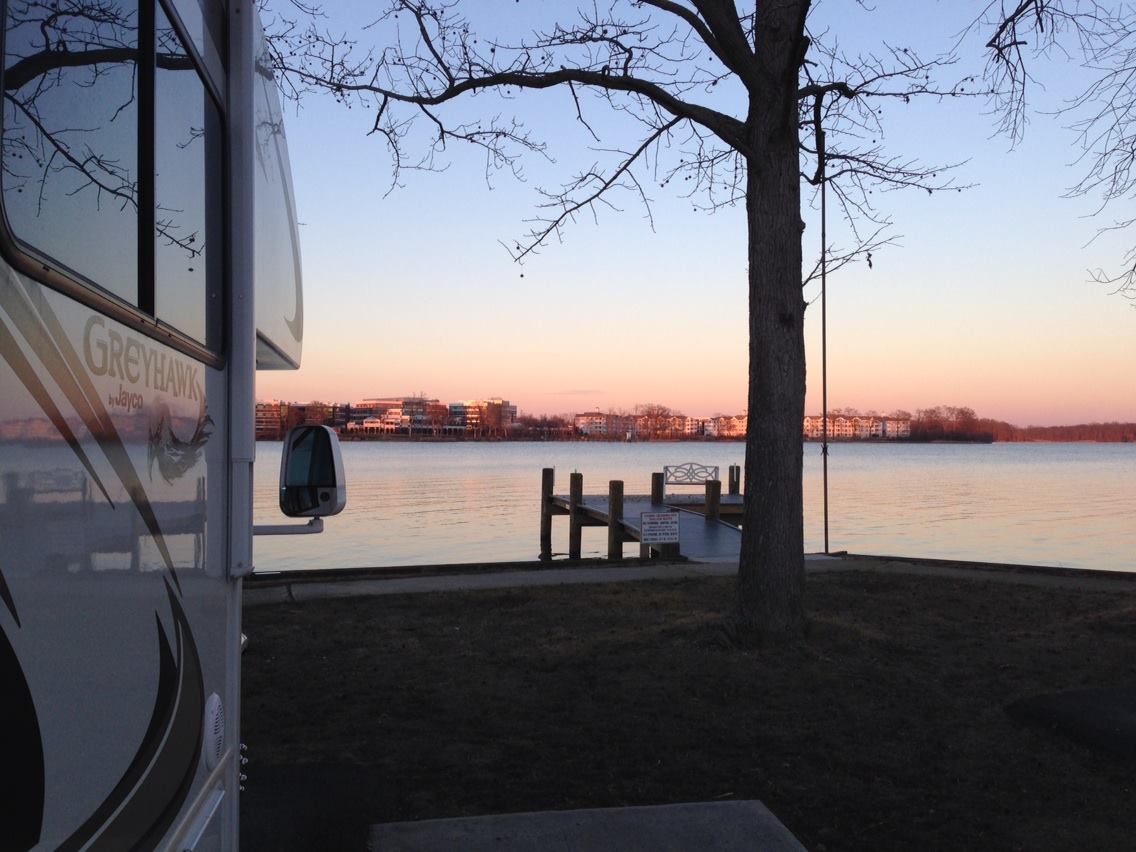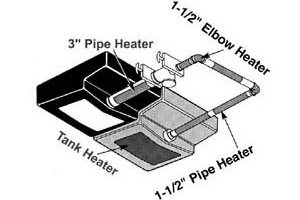| Humidity and Condensation |
One of the keys for winter RVing is dealing with humidity and condensation. When it was 5F at Trinidad Lake State Park, we woke up with condensation frozen in a sheet across the big windows over the dinette and sofa. So...we bought an electric dehumidifier.
We chose the Eva-Dry Edv-2200 Mid-Size Dehumidifier, with a capacity larger than needed for the area because it needs to dehumidify quickly during the night. We also insulated the windows as you'll see below.
Don't forget how much moisture cooking releases into the air! If your range vent vents to the outside, it'll help manage humidity and condensation inside...but then you lose some heat, and the flap outside can make some noise when it's windy. Water vapor is actually a byproduct of burning propane, so using the range or oven produces humidity, as do propane heating appliances that aren't vented outside. It may be good to put the dehumidifier near the stove if you have room.
Another easy behavior change for winter RVing is to use small electric heaters when you're on shore power. On our Greyhawk, the electric furnace isn't much good below 30F or so. The propane furnace is much warmer but propane is expensive! So we bought two of these
Pelonis ceramic electric heaters to make up the difference. We're already paying the campground for electricity, so we might as well use their electricity instead of our propane! (Some RV parks apparently charge extra if you're using electric heat, but we haven't been to one of those yet.)
These ceramic heaters are more expensive than many, but according to reviews they also last a lot longer. Most small electric heaters are designed for occasional use rather than all-night use on a regular basis.
| Open Indoor Utility Cabinets |
It's also a good idea to open the cabinets that house your inside water lines, the water pump, etc. Many of these are along the poorly-insulated floor and it can get very cold inside the cabinet. Opening the cabinet doors during the night might take away some of your heat, but it may also keep your lines or pump from freezing. (Assuming you didnt' leave it winterized.) Some folks even point their electric heaters to blow inside the cabinet to keep the water system even warmer; just be careful about putting the heater too close to anything flammable.
 Two great things about RVing in winter: you get to use your investment year-round, and there aren't many crowds because most people haven't figured out how to do it comfortably. To the left is a ski trip we took to Keystone and Breckenridge in January, and below is a sunset on Baltimore Harbor also in January. We got a great deal on the Baltimore site because the park was almost empty, and picked a place right on the water! Although we did leave a day early because a big snowstorm was moving in.
Two great things about RVing in winter: you get to use your investment year-round, and there aren't many crowds because most people haven't figured out how to do it comfortably. To the left is a ski trip we took to Keystone and Breckenridge in January, and below is a sunset on Baltimore Harbor also in January. We got a great deal on the Baltimore site because the park was almost empty, and picked a place right on the water! Although we did leave a day early because a big snowstorm was moving in.

 My Greyhawk came with tank heaters on the fresh, gray and black tanks, but one time I tried to dump and the drain pipes were frozen! I had used windshield washer fluid in the gray tank and formaldehyde in the black tank, and the heaters were on, but it was cold enough to freeze in the pipes anyway. So I bought
My Greyhawk came with tank heaters on the fresh, gray and black tanks, but one time I tried to dump and the drain pipes were frozen! I had used windshield washer fluid in the gray tank and formaldehyde in the black tank, and the heaters were on, but it was cold enough to freeze in the pipes anyway. So I bought